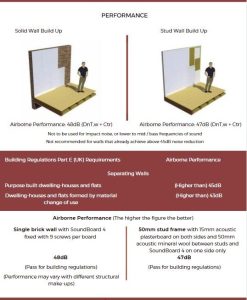Noise Regulations in Student Housing in Reading
Regulations in Student Housing in Reading
Residents in the community are expected to respect each other’s rights to a quiet environment for study, rest and sleep. Those who do not will be subject to disciplinary action, up to and including expulsion from the residence system. This includes limiting noise to the Reading student accommodation, as well as keeping the volume on sound reproduction equipment to a level that will not disturb others in the halls and other living areas sharing walls. The use of stereos that can be heard outside the living unit and in common areas is prohibited.
During quiet hours, from 10 p.m. to 7 a.m., it is against the law to play music loudly or hold a gathering on a private property unless the host obtains a permit from the police department. If a person complains that music or noise is being played too loud, the police will visit the scene and ask for proof that the activity is in compliance with town ordinances. If the evidence shows the music or noise isn’t in compliance, the police will issue a citation for violating the town’s noise ordinance.
The police also work closely with the college, which has a noise officer whose job is to investigate and respond to complaints of students making excessive noise. Students can also get in trouble for a number of other activities, such as putting up posters or banners on their neighbors’ houses or affixing fliers and brochures to community walls and other public places.

Noise Regulations in Student Housing in Reading
In the case of a serious violation, a resident may be reported to a university officer and could face fines or other penalties, such as being removed from university accommodation. This is likely to depend on the severity of the complaint and how many times the person has been reported for the same offense.
Despite the efforts by the police and college, some residents such as John Tenny believe the college and the town are not doing enough to help control off-campus student behavior. He says his house borders 53 North Pleasant St, where he has seen Reading student accommodation shouting and playing music on his property late into the night and damaging his yard. He has complained to both the police and the college.
While a majority of the community supports the new noise regulations, some residents are still skeptical. The issue is not easily solved, but the police and college are continuing to try to mediate the situation. Besides attending Selectboard meetings and creating an online reporting system for residents to express their issues with off-campus students, Middlebury College administrators have been actively addressing the problem by visiting local homes in the area and speaking with individual students.
When it comes to pursuing higher education, finding suitable accommodation is a crucial aspect of the student experience. Student accommodation serves as a home away from home, providing a comfortable and supportive environment for students to thrive academically, socially, and personally. In this article, we will explore the significance of student accommodation and discuss its key features that contribute to creating a positive and enriching living experience for students.
They have also been promoting the ordinance by handing out posters and brochures. If you have a noisy neighbor, you should start by reminding him or her of the rules and inviting them to discuss the issue with you in person. If that fails, you can always report the problem to the landlord or homeowners’ association in writing and get other neighbors to sign a letter supporting your complaint. Landlords and homeowners’ associations usually take written complaints very seriously and will order a problem neighbor to stop the behavior.